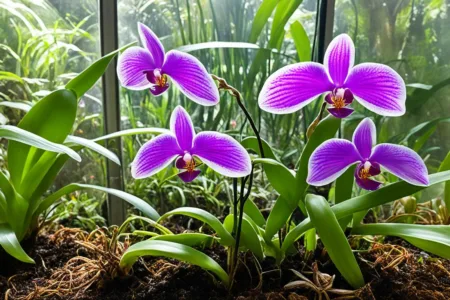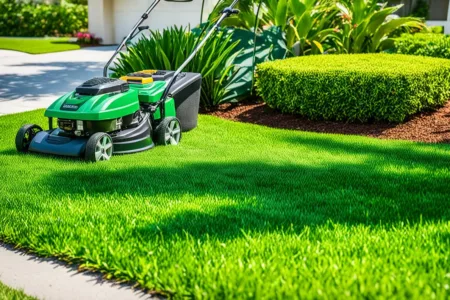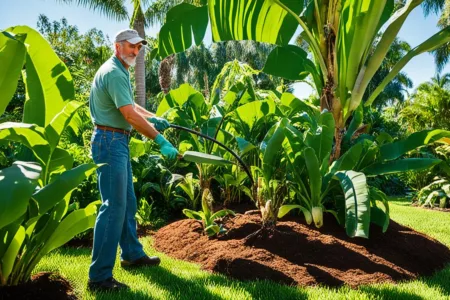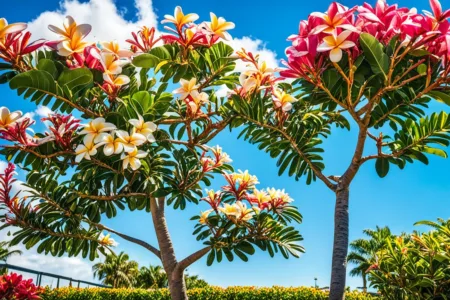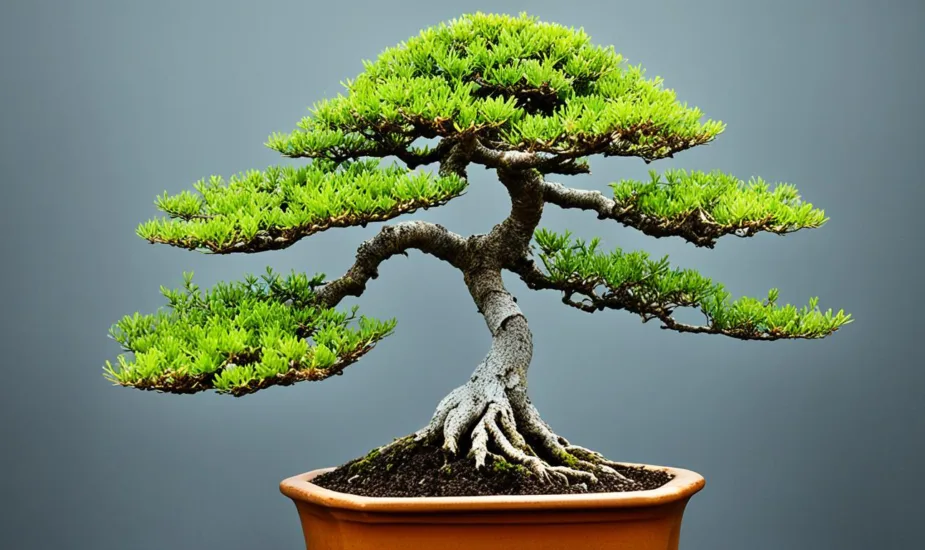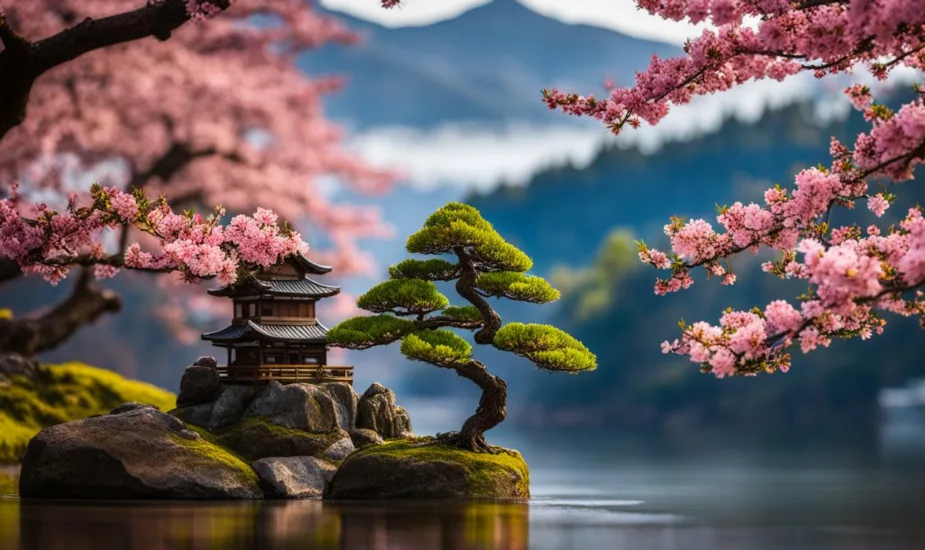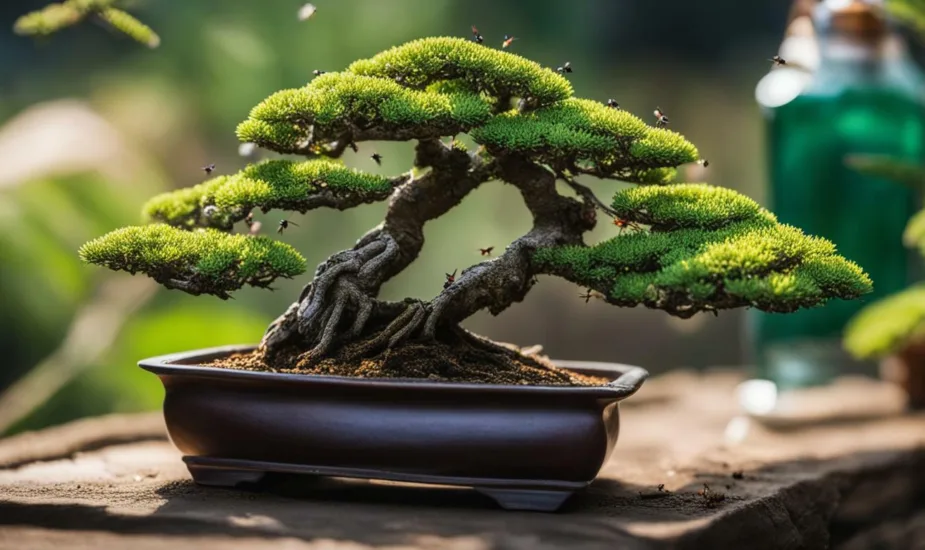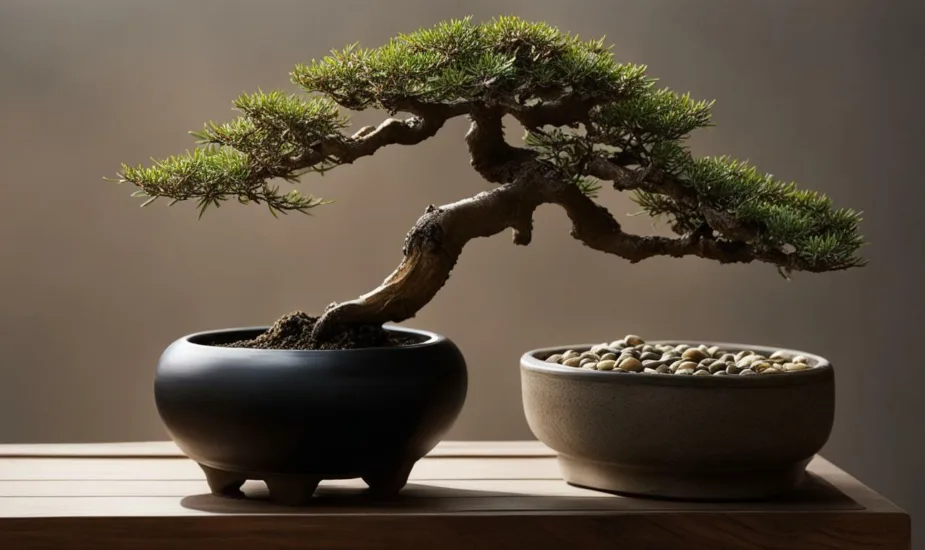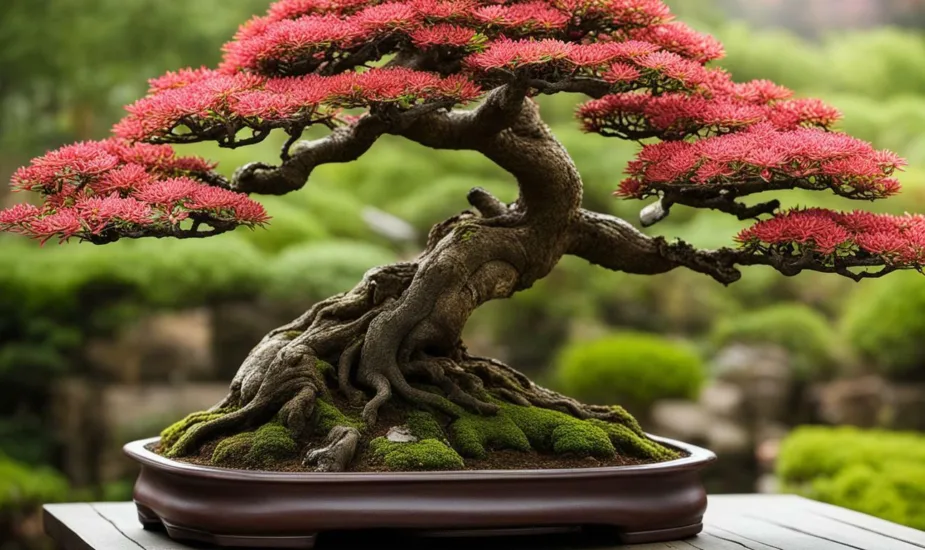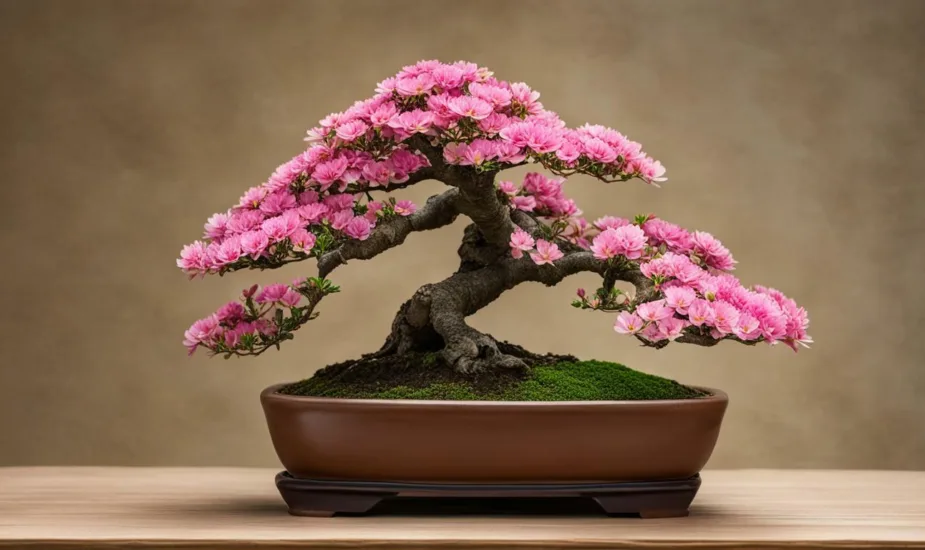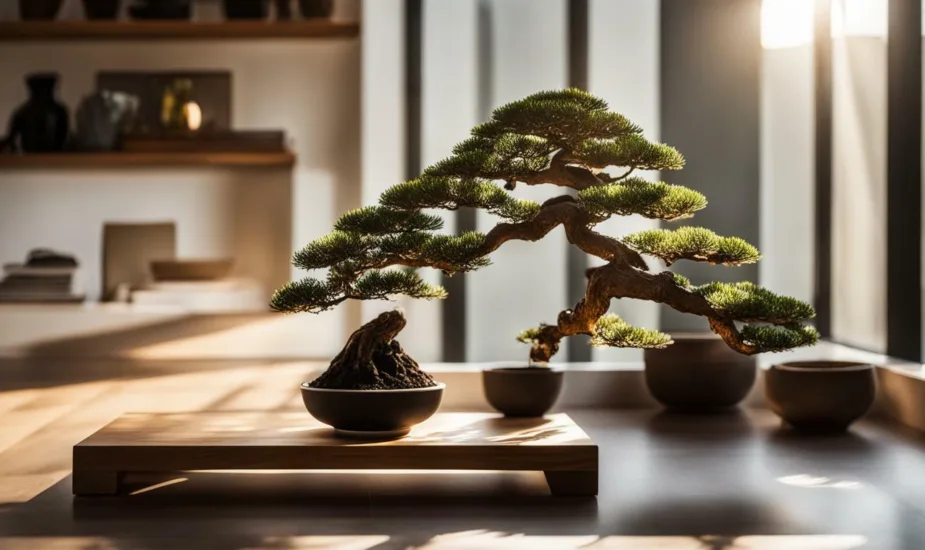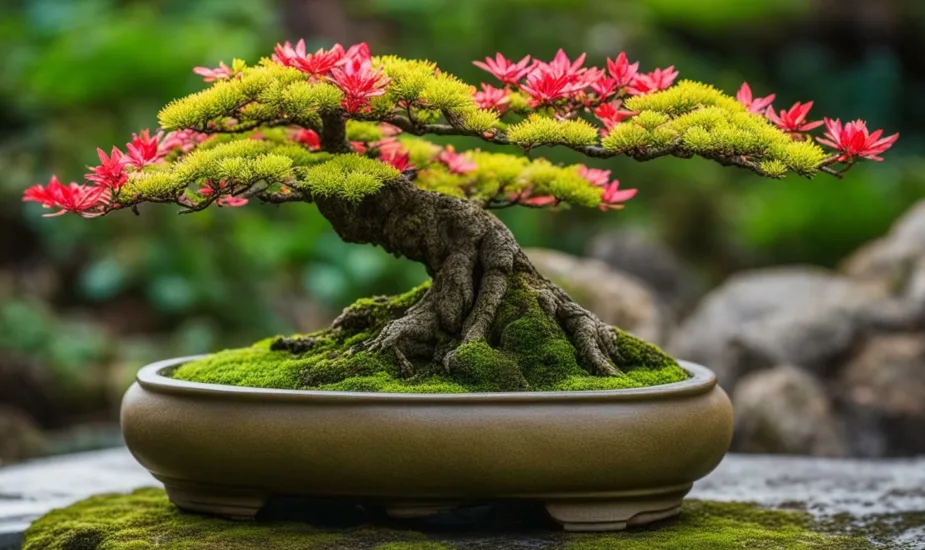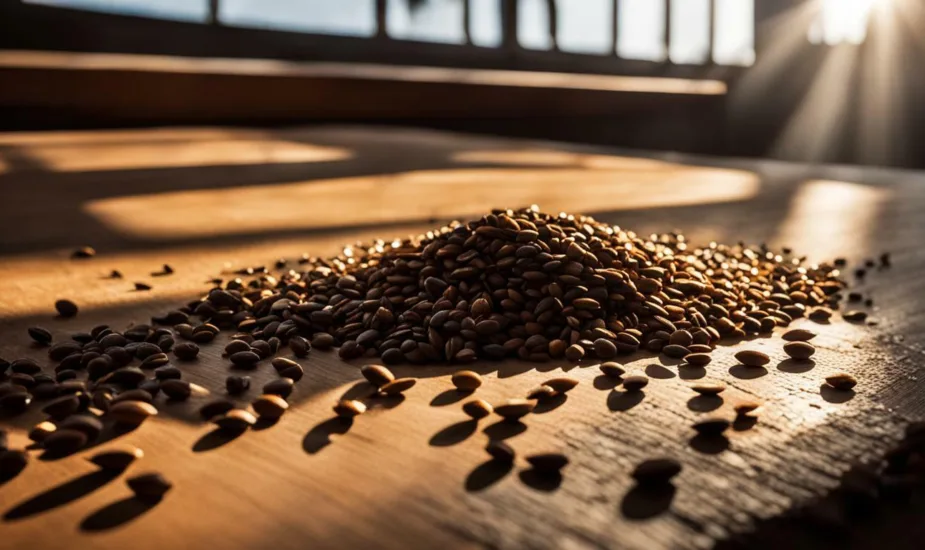Bonsai Trees Like Coffee Grounds: Surprising Benefits
Discover how bonsai trees like coffee grounds can boost soil health and enhance growth. Learn the secrets to a thriving bonsai with this natural tip.

As a bonsai enthusiast, I’m always on the lookout for new ways to enhance the health and beauty of my miniature trees. Recently, I came across a surprising and unconventional method that has had remarkable results: using coffee grounds. Yes, you read that right – coffee grounds!
It all started when a fellow bonsai enthusiast shared their secret to lush, vibrant bonsai trees with me. They mentioned that they had been using coffee grounds in their bonsai care routine and noticed incredible benefits. Intrigued, I decided to give it a try.
After a couple of weeks of incorporating coffee grounds into my bonsai soil, I was amazed by the results. My trees seemed to be thriving like never before. The leaves were greener, the branches more robust, and the overall vitality of the trees was evident.
Curious to understand the science behind this phenomenon, I delved deeper into the world of coffee grounds and their impact on bonsai trees. I discovered that coffee grounds are packed with essential nutrients that promote growth and overall tree health. Not only do they contain nitrogen, potassium, and phosphorus, but they also provide micronutrients like copper and magnesium that are vital for balanced growth.
However, it’s important to use coffee grounds wisely and in the right balance. Too much acidity can harm certain tree species, while others may benefit from the natural pest deterrent properties of coffee grounds. To ensure optimal results, I found that it’s crucial to understand the specific needs of each bonsai species and adjust the use of coffee grounds accordingly.
The benefits of using coffee grounds in bonsai care go beyond just nutrient enrichment. Coffee grounds also improve soil aeration and drainage, acting as a natural mulch that retains moisture and reduces weed growth. Additionally, the texture and aroma of coffee grounds act as a protective shield, repelling pests like slugs and snails without the need for harsh chemicals or pesticides.
Intrigued by the potential of coffee grounds as a cost-effective and organic fertilizer alternative, I decided to explore different methods of utilizing spent coffee grounds. From direct application to composting, each approach has its advantages, allowing bonsai owners to tailor their care routine to the specific needs and resources available.
The synergy between bonsai trees and coffee grounds is a fascinating concept that has revolutionized my approach to bonsai care. Through this journey, I’ve witnessed the remarkable benefits of coffee grounds firsthand and hope to inspire fellow bonsai enthusiasts to explore this unconventional yet effective method. Embracing the beauty of nature and the wonders it holds is what makes bonsai art so captivating, and using coffee grounds is just another way to nurture and celebrate the extraordinary.
Key Takeaways:
- Coffee grounds provide essential nutrients for bonsai trees, promoting balanced growth and overall tree health.
- Using coffee grounds wisely improves soil aeration and drainage, reducing waterlogging and weed growth.
- Coffee grounds act as a natural pest deterrent, repelling slugs, snails, and other pests.
- Spent coffee grounds can be used as an organic and cost-effective fertilizer alternative for bonsai trees.
- The specific needs of individual bonsai species should be considered when using coffee grounds in bonsai care.
Bonsai Trees Like Coffee Grounds: A Natural Boost for Growth and Health
Coffee grounds are a fantastic resource for nurturing the growth and health of bonsai trees. The nutrient-rich composition of coffee grounds provides essential elements that promote balanced growth and overall well-being. Rich in nitrogen, potassium, phosphorus, copper, and magnesium, coffee grounds offer a natural source of these vital nutrients for your bonsai trees.
The Nutrient-Rich Composition of Coffee Grounds for Bonsai
The unique composition of coffee grounds makes them a valuable addition to bonsai care. The nitrogen in coffee grounds is particularly crucial for promoting chlorophyll production, which is essential for healthy leaf and stem growth. Additionally, potassium and phosphorus aid in root development and overall tree vigor. The micronutrients, such as copper and magnesium, support the overall health and resilience of your bonsai trees.
Utilizing coffee grounds as a fertilizer for bonsai trees ensures that they receive a nutrient-rich diet that enhances their growth potential and overall health.
Understanding the Right Balance: Using Coffee Grounds Wisely
While coffee grounds offer numerous benefits to many bonsai species, it’s essential to understand the preferences and needs of individual tree species. Some species, such as azaleas, camellias, and ferns, may be sensitive to the acidity of coffee grounds. In such cases, it may be best to use coffee grounds as a natural pest deterrent rather than a fertilizer. Consulting gardening experts and undertaking proper research will help you determine the best approach to using coffee grounds wisely for your specific bonsai tree species.
Species That Thrive With Coffee Grounds Fertilization
Many bonsai species thrive with coffee grounds fertilization and reap the benefits of their nutrient-rich composition. Some examples of bonsai tree species that respond positively to coffee grounds include jade plants, money trees, and ficus trees. These species can tolerate the slight acidity of coffee grounds and benefit from the additional nutrients they provide. By experimenting and observing the response of your bonsai trees, you can identify the species that thrive with coffee grounds fertilization.
| Bonsai Species | Fertilization Benefit from Coffee Grounds |
|---|---|
| Jade plant | Enhanced growth and foliage density |
| Money tree | Improved root development and leaf color |
| Ficus tree | Increased overall vigor and resilience |
Bonsai Soil Enrichment with Coffee Grounds: Pros and Cons

Coffee grounds have the potential to enrich the soil of bonsai trees, offering a range of benefits. They can improve soil aeration and drainage, which play crucial roles in maintaining root health and preventing waterlogging in bonsai containers. Additionally, coffee grounds act as a natural mulch, reducing weed growth and helping the soil retain moisture.
One of the significant advantages of using coffee grounds for soil enrichment is their ability to improve the overall aeration and drainage of the soil. This is essential for bonsai trees as it promotes healthy root development and prevents the roots from becoming suffocated by excessive moisture. By enhancing the soil structure, coffee grounds allow for better airflow and the efficient movement of water, oxygen, and nutrients to the bonsai tree’s roots.
However, it’s essential to be cautious when using coffee grounds for bonsai soil enrichment. Overusing coffee grounds can result in excessive acidity in the soil, which can be detrimental to certain plant species. When the soil becomes too acidic, it can disrupt the pH balance and lead to stunted growth or nutrient deficiencies in bonsai trees. Therefore, it’s crucial to strike the right balance and adjust the amount of coffee grounds used based on the specific needs and preferences of the bonsai species.
To avoid the risks of overusing coffee grounds, it’s recommended to monitor the pH levels of the soil regularly. Testing kits can be used to measure the acidity, ensuring that it remains within the optimal range for the bonsai species being grown. By being mindful of the potential risks and adjusting the usage of coffee grounds accordingly, bonsai enthusiasts can maintain a healthy soil environment for their trees and enjoy the benefits of using coffee grounds for soil enrichment.
Improving Soil Aeration and Drainage
Bonsai trees require well-aerated soil to thrive, and coffee grounds can play a significant role in achieving this. The addition of coffee grounds improves the soil structure by increasing its porosity and preventing compaction. This allows for better airflow and the optimal exchange of gases between the roots and the soil, promoting root health and overall tree vigor.
Risks of Overuse: Avoiding Excessive Acidity
While coffee grounds can offer numerous benefits for bonsai soil enrichment, it’s crucial to avoid overuse to maintain a balanced pH in the soil. Overusing coffee grounds can make the soil excessively acidic, which can negatively impact the growth and overall health of bonsai trees. It’s important to strike a balance and carefully monitor the pH levels to ensure that the soil remains within the optimal range for the specific bonsai species being cultivated.
| Pros of Bonsai Soil Enrichment with Coffee Grounds | Cons of Bonsai Soil Enrichment with Coffee Grounds |
|---|---|
| Improves soil aeration and drainage | Can lead to excessive soil acidity if overused |
| Acts as a natural mulch, reducing weed growth | May not be suitable for all bonsai species |
| Helps the soil retain moisture | Requires careful monitoring of pH levels |
Natural Pest Control: Coffee Grounds as a Protective Shield for Bonsai

Coffee grounds can serve as a natural pest control method for bonsai trees. The strong aroma and texture of coffee grounds repel pests like slugs and snails, keeping them away from the bonsai.
By sprinkling coffee grounds around the base of the bonsai pot, bonsai owners can create a protective barrier that pests are reluctant to cross. This organic pest control method is safe for the tree and the environment, avoiding the need for harsh chemicals.
However, it’s important to note that coffee grounds may not be effective against all types of pests, and additional measures may be necessary for complete pest prevention.
Utilizing Spent Coffee Grounds: Organic and Cost-Effective Fertilizer Alternatives

When it comes to caring for bonsai trees, utilizing spent coffee grounds can offer a range of benefits that are both organic and cost-effective. With their nutrient-rich composition, coffee grounds can provide essential elements for the growth and health of bonsai trees. There are two primary methods of using coffee grounds in bonsai care: direct application or composting.
Making the Most of Coffee Grounds in Composting for Bonsai:
Composting coffee grounds with other organic materials can create a nutrient-rich compost that can be used to amend the soil in a controlled and balanced manner. By combining coffee grounds with items such as grass clippings, leaves, or kitchen scraps, bonsai owners can create a well-rounded compost that provides a steady release of nutrients for their trees. Composting coffee grounds allows for better nutrient distribution and optimization of soil health, ensuring that bonsai trees receive the necessary nourishment.
Direct Application vs. Composted Coffee Grounds: Methods Compared:
On the other hand, adding coffee grounds directly to the soil around the bonsai tree provides a slow release of nutrients and improves soil fertility. This method is more straightforward and requires minimal effort. Bonsai owners can simply scatter the coffee grounds around the base of the tree, allowing the natural decomposition process to release the nutrients over time. While direct application may not provide the same level of nutrient control as composting, it can still be an effective way to enhance the soil and promote the overall health of bonsai trees.
Choosing between direct application and composting methods depends on individual preferences and available resources. Composting offers more control over nutrient distribution, while direct application is simpler and requires less time and effort. Bonsai owners should consider their specific needs and the needs of their trees when deciding which method to use.
| Direct Application | Composted Coffee Grounds | |
|---|---|---|
| Method | Scatter coffee grounds around the base of the tree | Mix coffee grounds with other organic materials and create compost |
| Nutrient Release | Slow and gradual | Controlled and steady |
| Effort Required | Minimal | More involved |
| Nutrient Control | Less control | Greater control |
Both direct application and composting methods have their advantages and can contribute to the overall health and vitality of bonsai trees. The key is to utilize spent coffee grounds wisely for organic and cost-effective fertilization. Whether you choose to compost or apply coffee grounds directly, rest assured that you are providing your bonsai trees with a natural and nutritious boost.
Bonsai Care with Coffee Grounds: Soil Moisture and Root Health Advantages

Coffee grounds play a crucial role in the care of bonsai trees, providing several advantages for soil moisture and root health. By incorporating coffee grounds into your bonsai care routine, you can enhance the overall vitality and well-being of your trees.
The Significance of Nitrogen in Promoting Chlorophyll Production
One of the key benefits of using coffee grounds in bonsai care is their nitrogen content. Nitrogen is an essential nutrient for plants, as it plays a vital role in promoting chlorophyll production. Chlorophyll is responsible for the green color of leaves and is crucial for photosynthesis, the process by which plants convert sunlight into energy. By providing a source of nitrogen through coffee grounds, you can support robust leaf and stem growth in your bonsai trees.
Enhancing Root Access to Water and Nutrients Via Soil Amendment
Coffee grounds also contribute to improving root health in bonsai trees by enhancing root access to water and nutrients. The organic matter in coffee grounds helps retain moisture in the soil, reducing the frequency of watering and increasing water availability for the roots. Additionally, coffee grounds improve soil structure and aeration, allowing roots to penetrate more easily and access the necessary nutrients for growth. This soil amendment aids in creating a favorable root environment, leading to healthier, more resilient bonsai trees.
Key Benefits of Bonsai Care with Coffee Grounds
| Benefit | Description |
|---|---|
| Increased soil moisture | Coffee grounds help retain moisture in the soil, reducing the frequency of watering and ensuring adequate hydration for the roots. |
| Promotion of root health | The organic matter in coffee grounds improves soil structure and aeration, enhancing root access to water and nutrients. |
| Stimulated chlorophyll production | The nitrogen in coffee grounds promotes chlorophyll production, supporting robust leaf and stem growth. |
By leveraging the benefits of coffee grounds in bonsai care, you can optimize soil moisture levels, improve root health, and enhance the overall growth of your bonsai trees. Remember to use coffee grounds wisely, considering the specific needs of your tree species, to maintain a balanced soil pH and avoid overuse.
Conclusion
By incorporating coffee grounds into the care of bonsai trees, we can unlock a range of benefits that promote their growth and health. The synergy between bonsai trees and coffee grounds is undeniable, offering a natural and cost-effective solution to enhance the vitality of these miniature beauties.
Coffee grounds truly work wonders by providing essential nutrients to the bonsai trees. Their nutrient-rich composition nourishes the roots and fosters balanced growth. Additionally, coffee grounds contribute to improving soil aeration and drainage, creating an optimal environment for the roots to access water and nutrients. This, in turn, supports the overall health and resilience of the bonsai trees.
Furthermore, coffee grounds act as a natural pest deterrent, protecting the bonsai from unwanted visitors like slugs and snails. By creating a shield around the base of the bonsai pot, coffee grounds keep these pests at bay without the need for harsh chemicals or harmful substances.
Though the advantages of coffee grounds are numerous, it’s essential to approach their use with caution and adapt to the specific requirements of different bonsai species. Understanding the right balance of coffee grounds usage is crucial to prevent soil acidity issues that may hinder the growth of certain plants. With proper research, responsible application, and regular monitoring, the synergy between bonsai trees and coffee grounds can lead to thriving, vibrant, and healthy trees that bring joy and admiration to their owners.
FAQ
Do bonsai trees benefit from the use of coffee grounds?
Yes, coffee grounds can provide several benefits for bonsai trees, including improved soil quality, enhanced root access to nutrients, natural pest control, and cost-effective fertilization options.
What nutrients do coffee grounds contain that benefit bonsai trees?
Coffee grounds contain essential nutrients like nitrogen, potassium, phosphorus, and micronutrients such as copper and magnesium, which promote balanced growth and overall well-being.
How should I use coffee grounds wisely for bonsai care?
It’s important to understand the preferences and needs of your individual bonsai species. While many thrive with coffee grounds as a fertilizer, some species may be more sensitive to the acidity of coffee grounds and benefit from their use as a natural pest deterrent instead.
Can I use coffee grounds to improve soil quality for bonsai trees?
Yes, coffee grounds can enhance soil aeration and drainage, reduce weed growth, and retain moisture in the soil.
Are there any risks of overusing coffee grounds for bonsai?
Yes, using excessive coffee grounds can make the soil too acidic, affecting the pH balance and potentially causing stunted growth or nutrient deficiencies in certain bonsai species. It’s important to find the right balance and adjust the amount of coffee grounds used accordingly.
Can coffee grounds be used as a natural pest control method for bonsai trees?
Yes, the strong aroma and texture of coffee grounds repel pests like slugs and snails. By sprinkling coffee grounds around the base of the bonsai pot, you can create a protective barrier.
How can I utilize spent coffee grounds as a fertilizer for bonsai trees?
You can either apply the coffee grounds directly to the soil around the bonsai tree for a slow release of nutrients, or compost the coffee grounds with other organic materials to create a nutrient-rich compost that can be used to amend the soil.
How do coffee grounds promote soil moisture and root health for bonsai trees?
Coffee grounds help retain moisture in the soil, reducing the frequency of watering and increasing water availability for the roots. They also improve soil aeration and enhance root access to water and nutrients.
 Little Garden Tips
Little Garden Tips
